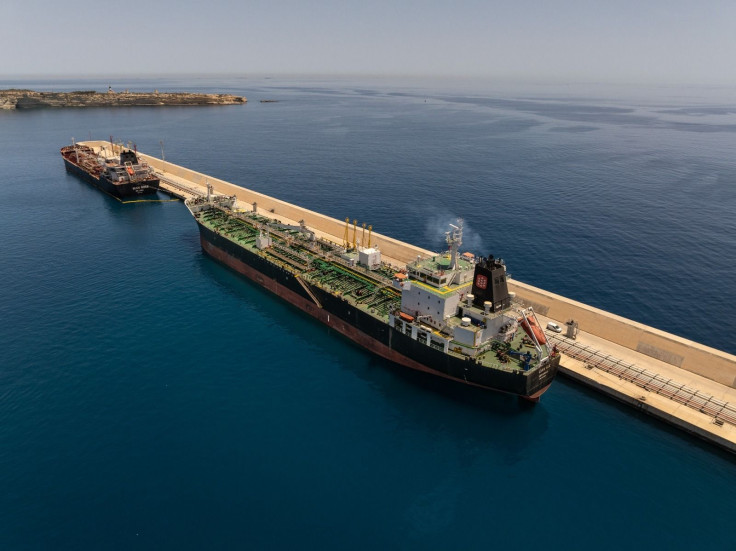From Cooking Oil to Capital Flows: Inside Alkagesta's Circular Economy Bet
Waste to Wealth: Alkagesta's Biofuel Investment Strategy

In Britain's drive toward net zero, the next frontier in green finance isn't just wind farms or electric vehicles. It's waste. More specifically, it's used cooking oil. Once a kitchen byproduct, this waste stream has become a prized raw material for the renewable fuel industry. As the UK's biofuels market accelerates, Alkagesta, the London-based arm of the Alkagesta company, is betting that turning waste into wealth could redefine how global investors engage with the circular economy.
The UK's Waste-to-Fuel Opportunity
The Renewable Transport Fuel Obligation (RTFO) remains at the core of the UK's renewable fuel policy. Under this scheme, fuel suppliers must blend a growing proportion of low-carbon biofuels into conventional fuel. The Department for Transport's latest data show that 3.7 billion litres of renewable fuel were supplied in 2023 - a 10% rise on the previous year, representing more than 7% of all UK transport fuel (gov.uk).
A significant share of that growth came from waste-derived inputs like Used Cooking Oil (UCO) and animal fats. These feedstocks are doubly credited under RTFO rules, incentivising recycling and reducing lifecycle emissions. Analysts expect UCO to remain one of the fastest-growing biofuel inputs, especially for Hydrotreated Vegetable Oil (HVO). This renewable diesel alternative can cut greenhouse gas emissions by up to 90%.
However, the market faces volatility. According to ESL Fuels' Q1 2025 Biofuel Market Update, HVO prices based on UCO ranged between $1,650 and $1,950 (approximately £1,230 and £1,450) per tonne, fluctuating with global supply and demand for waste feedstocks. Meanwhile, the domestic bioethanol industry has struggled against cheaper imports, forcing investors to look for more resilient value chains.
Where Finance Meets Circularity
That is precisely where Alkagesta enters the picture. As part of the wider Alkagesta company, headquartered in Malta, and with strategic reach through Alkagesta Singapore, the firm integrates commodity trading, logistics, and structured finance to make circular-economy assets bankable.
By aggregating UCO supply, structuring long-term off-take agreements, and ensuring ISCC EU certification across its network, Alkagesta provides the kind of transparency investors demand. This approach helps bridge an often-overlooked gap: the one between green projects and green capital.

In a recent statement, Orkhan Rustamov, Chief Executive Officer of Alkagesta, said:
'Our esteemed customers value not only execution but trust and transparency. Singapore is where Asian markets converge with global capital. By opening a hub there, we are creating a strategic bridge between Europe and Asia that ensures compliant fuel flows and contributes to a sustainable global trading ecosystem.'
For Alkagesta, that bridge doesn't just connect continents - it connects sustainability with profitability. The company's London office focuses on institutional partnerships, using the UK's financial infrastructure to finance bio-feedstock projects across Europe, Asia, and Africa.
A Global Trading Network Built for Sustainability
The group's trading arm, Alkagesta Malta, manages global sourcing and logistics, while Alkagesta UK specialises in structured investments and capital flows. In Asia, Alkagesta Singapore serves as the operational hub for sourcing sustainable feedstocks and connecting regional producers to global buyers.
According to the company's 2024 ESG Report, Alkagesta increased the volume of UCO collected and treated at its recycling plants by 10% year-on-year, achieving a 39% growth in collection points worldwide. The firm's feedstock processing plants now deliver bio-feedstock compliant with EU Renewable Energy Directive (RED III) standards - a key credential for exporters serving European markets.
These numbers reflect the growing significance of waste-based fuels. In the EU, about 46% of all vegetable oil now goes into biodiesel production, and HVO volumes continue to expand thanks to their exemption from blending limits. For London's investors, this signals a long-term market trend rather than a fleeting sustainability fad.
Why London Matters
London's position as a global hub for commodity trading and structured finance gives it a unique role in scaling the circular economy. According to PitchBook, UK-based ESG-related private equity transactions hit £71 billion in disclosed value in the first half of 2025 - nearly doubling year-on-year. Institutional investors, facing stricter ESG mandates, are actively seeking tangible assets with verifiable impact.
That's where Alkagesta's expertise fits neatly into the puzzle. Its governance and compliance infrastructure - including advanced due diligence tools such as World-Check and SeaSearcher - ensures that every feedstock transaction is traceable and compliant. For risk-averse financial institutions, this makes the difference between "nice to have" sustainability and measurable, reportable outcomes.
A Circular Vision with Global Reach
Behind the numbers lies a broader vision: transforming how the world values waste. Alkagesta's integrated approach combines trade execution, risk management, and investment structuring, turning UCO and other bio-feedstocks into investable commodities. Its network links restaurants and food manufacturers - once waste generators - to refiners and fuel suppliers across continents.
By positioning its UK arm as a centre for capital structuring, Alkagesta enables the City of London to finance the global circular economy. Meanwhile, its Singapore and Malta operations secure feedstock flows and regulatory compliance, making the business both vertically integrated and geographically diversified.
The Broader Outlook
The International Energy Agency (IEA) forecasts that global demand for advanced biofuels will increase by more than 20% by 2030, with waste-derived fuels making up the bulk of that expansion. For the UK, where energy security and sustainability increasingly go hand in hand, this presents a compelling dual opportunity - reducing emissions while unlocking investment potential.
What was once kitchen waste has become a strategic commodity - and, increasingly, an asset class of its own. Through its tri-continental network - Alkagesta Malta, Alkagesta, and Alkagesta Singapore - Alkagesta company is turning circular economy rhetoric into financial reality.
As London strengthens its role in sustainable finance, Alkagesta exemplifies how traditional commodity houses are evolving: from oil traders to architects of the low-carbon economy. Turning cooking oil into capital flows may sound like alchemy, but in the 21st century, it's sound economics.
© Copyright IBTimes 2025. All rights reserved.





















